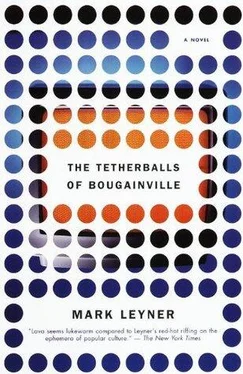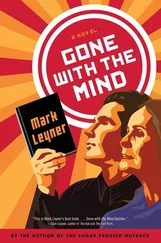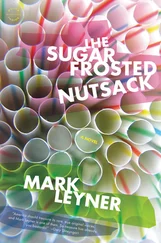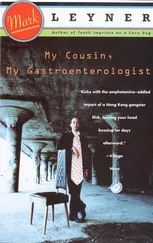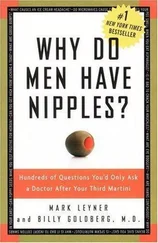At any rate, obviously this is neither the time nor the place for what Walter Pater called “burning with the hard, gem-like flame” (my English teacher, Mr. Minter, interprets this as a kind of aesthetic rapture , but my friends and I believe that Pater was referring to a hot bone ). So in an effort to quell arousal, I try conjuring unpleasant thoughts. But I can’t think of anything at the moment. I guess, on balance, I’m a pretty upbeat, sanguine guy. I’m basically a morning person. And I consider this a bona fide psychological category, because when you wake up in the morning, the first thing that really hits you is that you’re not dead, and if you tend to greet that basic fact with any degree of enthusiasm if not outright alacrity, then I think that’s a fairly strong indicator of an optimistic disposition. And man, I’m out of the chute each morning with out-and-out zipadeedoodah alacrity! I set the clock-radio alarm to 95.7 FM, which until recently was a classical station and is now all-Pathoco. Pathoco — which was originally called “Texas 12-Step”—is a musical subgenre that originated in some of the country’s most parochial, inbred, and anomic white suburbs. It features a bouncy sort of Tijuana Brass sound that completely belies its dark and often disturbing lyrics. For instance, the #1 Pathoco single right now is a song called “The Beasts of Yeast.” Against a very festive, up-tempo mariachi background, a man sings of his wife’s recent confession that every night she dreams of beating him with a baseball bat, covering his bloodied head with a plastic bag, sitting on his chest, punching his face, and screaming, “Die, David, Die!” and then once he dies, relaxing and smoking crack. In the next verse he sings about his five-year-old daughter, who euthanizes all of her stuffed animals and dolls. The father returns home from work each day to find his daughters dolls and teddy bears on the floor of her bedroom with plastic bags over their heads secured with thick rubber bands. When he asks her why she’s assisted her little friends in committing suicide, she says simply that they were “stressed out.” Then in the ensuing verse — in the phlegmatic, acquiescent falsetto of one whose ability to register indignation has corroded from years of living in New Jersey — he reveals that the underlying cause of all his family’s problems is severe food allergies. And in the chorus, husband, wife, and daughter, in shimmering three-part harmony, enumerate the offending substances: “Wheat gluten. Lactose. Yeast. Shellfish. Eggs. Tropical oils. Etc.” The malevolence of the banal — Legionnaire’s disease from a motel hot tub, toxic shock from a tampon, lung cancer from radon, leukemia from the electromagnetic radiation of high-voltage power transmission lines, MSG-induced spontaneous abortions from take-out lo mein — is a central Pathoco motif. But the music’s irrepressibly ebullient beat and the shrill, deliriously mirthful horn arrangements rouse me like reveille each morning. Bathroom ablutions consist of ground azuki-bean scrub for the blackheads, followed by a quick yogic deep-gargle (you swallow about a foot of what’s called “esophageal floss” and then pull it back out — I learned it from Mr. Vithaldas, he’s my Ayurvedic Health teacher, that’s my 7th-period elective), and then I descend on the kitchen and, if it’s a school-day morning, I have an espresso laced with a shot of calvados and some thinly sliced bichon frisé on a plain bagel, and then I’m out the back door and I’m at the tetherball pole. It’s difficult to adequately describe how important the sport of tetherball is to me. Yes, I love playing tetherball more than doing anything else in the world. Yes, I adore the way that the dew flies off the ball when I hammer that first serve each morning and the cord wraps in a tight spiral around the top of the pole and the ball caroms with such force that the cord uncoils with almost equal torque, and I crouch in a low, ballasted stance and let the ball sail over my back and then, my bodyweight cantilevered like a discus thrower’s, wield a lethal and quasi-legal cupped palm to sling it in an opposite orbit, and back and forth, in clockwise and then counterclockwise centrifugal arcs that whine as they split the air. Yes, the spiritual sludge of late-second-millennium life literally evaporates in the thermal vectors of my frenzied footwork, my bobbing and weaving, my parries and pirouettes, and it becomes like this atavistic dance, and I feel as if I’m dancing in the center of the sky. And yes, I feel as if everything most precious within myself is awakened and I experience an ineffable kinesthetic beatitude. But the coolest thing is that after I’ve been hitting for a while, there’s something about the way my pants smell when they get sweaty — I don’t know if it’s the kind of leather Versace uses or it’s just the way any leather smells when it gets wet — but it makes me completely euphoric, and I enter a highly evolved, massively parallel quantum fugue state during which I achieve tachyphrenic processing speeds of ten trillion floating-point operations per second, and I have cosmological revelations (e.g., instead of subatomic particles being composed of strings — which are tiny vibrating bits of hyperdimensional space — perhaps the ball-like leptons and quarks are attached to hyperdimensional tethers and they coil and uncoil around poles , which are the dimensionless interfaces between matter and antimatter) and then I get this incredible sensation throughout my body as if I’ve been given an ice-cold mint-jelly enema and bubbles of the frigid jelly are percolating up through my spinal column and bursting exquisitely in the back of my head.
So what I’m trying to say here is that, given the fact that I’m the kind of person who starts each day exulting in the aroma of his own sweaty pants, coming up with an unpleasant memory to preempt an erection is not easy. But finally, after racking my brain for almost a minute, I manage to dredge something up from last Thursday.
Something from television, actually.
What turns a person off is as inscrutably subjective as what turns a person on . There are four major turn-offs in the following synopsis of a story that aired last Thursday night on ABC’s 20/20 . See if you can deduce what they are. Put yourself in my Di Fabrizio boots as you read. Give yourself a time constraint — say fifteen seconds — and as you analyze the text for anaphrodisiacal elements, imagine the pressure I’m under as I frantically scan my own memory bank, scrotum tingling, the execution of my father only moments away.
To further enhance the interactive realism of the text, begin to masturbate as you read the following passage. For each turn-off you’re able to find before coming, award yourself 1,000 points. If your point total equals or exceeds 3,000, proceed to the section beginning All of this — the warden escorting me into the witness room, the momentary glimpse of the slope of her breast, possibly her areola … If your total is under 3,000, return to the words Felipe, his older sister Gretel, and I are watching TV Thursday night , and begin masturbating again.
Felipe, his older sister Gretel, and I are watching TV Thursday night. 20/20 is running a profile of Silvio Barnes, the painter who was blinded after being hit on the head with a frying pan while surfing the 35-foot breakers at Waimea Bay in Hawaii and then, less than a week later, suffered a massive stroke during a full-body wax at an after-hours depilation bar in Manhattan. Thanks to the Dove unauthorized biography, we all know the story by now of how, when Silvio was only fourteen, his father — the inventor of the Miracle Collar, the push-up collar for men’s dress shirts that gives the appearance of a larger, more protuberant Adam’s apple — offered Silvio a yearly stipend and a studio of his own. But Silvio, perceiving his father’s patronage as an instrument of control, refused, and catching the next plane and hydrofoil to Chiang Mai, a resort city in northern Thailand, took a job as a busboy at the Gesellschaft für Schwerionenforschung (Society for Heavy Ion Research), a gay dance club. Snatching a minute here and a minute there during breaks, he’d sneak off to the club’s sulfurous boiler room cum atelier, where he’d eventually complete his two astonishing masterpieces:
Читать дальше
